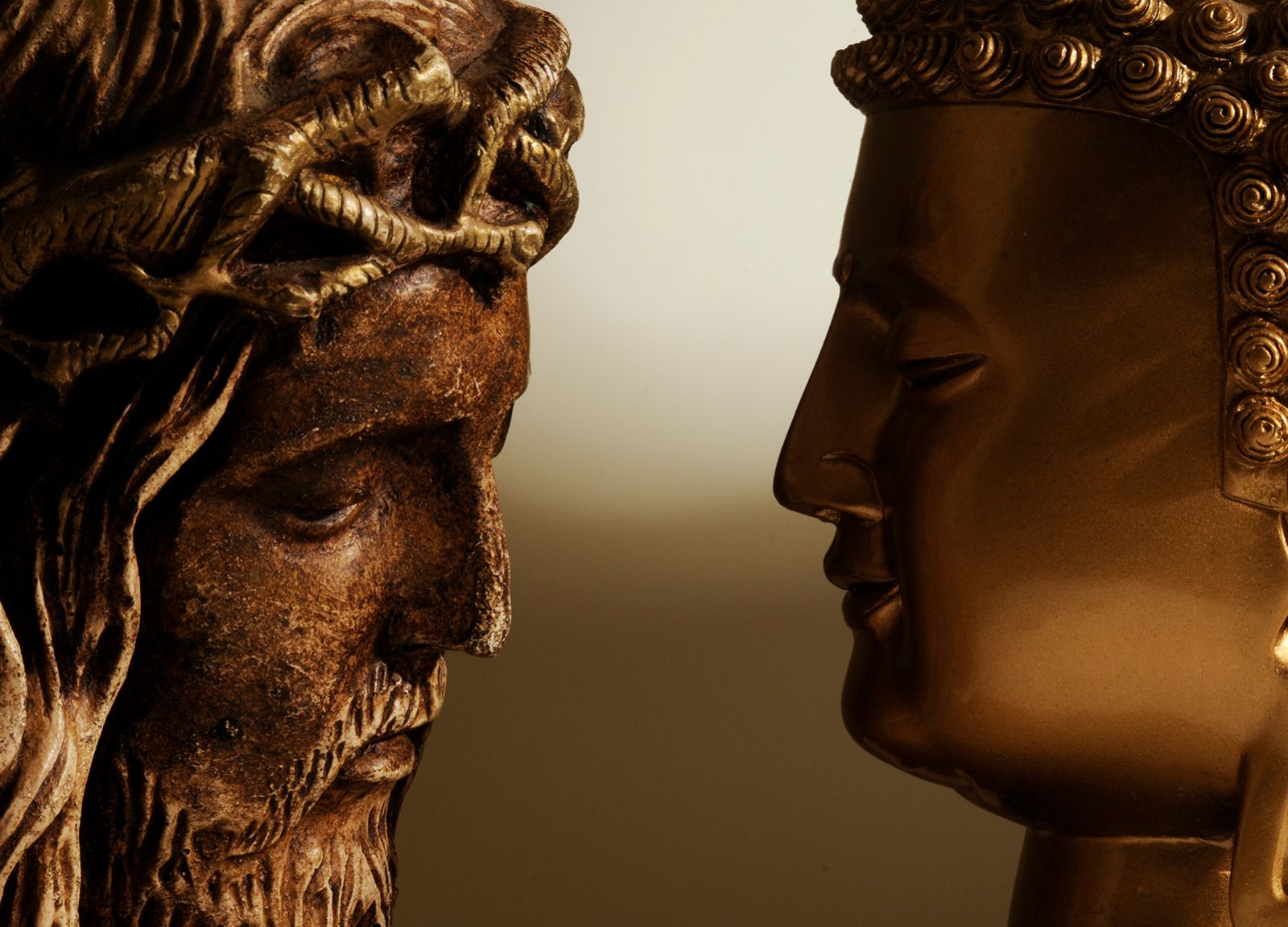
Overview
Welcome to Religion 131, World Religions/Religious Worlds. In this introductory online religious studies course, I will present some of the global world religions to you, with the expectation that you will use these building blocks as the foundation for later, more specialized research into religions, philosophy, anthropology, science, politics--really, the list is endless!
There are certain things that this course isn’t, so let’s get that out of the way first. This course is not a complete and thorough history of all world religions. This is only one course and we must work within the limits of time and space. I will present to you a sampling of religious traditions, all of which contribute to that larger category of world religions, and hope that by introducing the history, beliefs, and practices of some of these traditions that you will be prepared to study the global world in a more critical and expanded way.
This course is also not a place for personal religious reflection. While I encourage you to take the material from the lecture notes, readings, or discussion groups and apply it to other areas of your life (because isn’t that in part what an education is supposed to do?), the goal of this course is to introduce the academic study of world religions. To this end I request that you do not use your assignments or discussion groups as a place to engage in personal religious dialogue.
So what is this course? It is a way for you to become familiar with Hinduism, Buddhism, Taoism, Confucianism, Judaism, Christianity, and Islam. You will be introduced to each of these religions through their history, literature, world views, and ritual lives. You will gather information on each religion’s past and present, as we consider each of these traditions as histories and as lived traditions (which means that religions are made up of more than the ancient texts that we sometimes find at their centre). We take this time to encounter these world religions, because we live in a global world populated by millions of people whose world views are often informed by these very religions. We engage in the study of religion because we want to see the world with bigger eyes.
Learning Outcomes
**Subject to Change**
After completing RELS 131, students will be able to:
- Develop a definition of religion that recognizes the diversity of religious traditions.
- Compare and contrast the components of the major world religions.
- Identify the world’s religious traditions within their global and cultural context.
- Situate contemporary religious issues in their historical roots.
Terms
Evaluation
Mandatory formative assessment - Discussion (x5; best 5 out of 6)
25% - Critical reflection (x5; best 5 out of 6)
10% - Quiz MC questions (x5; best 5 out of 6)
10% - Build MC questions (x5; best 5 out of 6)
5% - Essay outline
20% - Research essay
30% - Final take home exam
*Evaluation subject to change*
Textbook and Materials
ASO reserves the right to make changes to the required material list as received by the instructor before the course starts. Please refer to the Campus Bookstore website at http://www.campusbookstore.com/Textbooks/Search-Engine to obtain the most up-to-date list of required materials for this course before purchasing them.
Required Textbook
1. Religion Matters: An Introduction to World Religions. Stephen Prothero (Norton, 2020)
Additional reading will be available online through Queen’s University Library.
Time Commitment
To complete the readings, assignments, and course activities, students can expect to spend, on average, about 15-18 hours per week (228 hours total) on the course.
Evaluation
Mandatory formative assessment - Discussion (x5; best 5 out of 6)
25% - Critical reflection (x5; best 5 out of 6)
10% - Quiz MC questions (x5; best 5 out of 6)
10% - Build MC questions (x5; best 5 out of 6)
5% - Essay outline
20% - Research essay
30% - Final take-home exam
**Evaluation Subject to Change**
Textbook and Materials
ASO reserves the right to make changes to the required material list as received by the instructor before the course starts. Please refer to the Campus Bookstore website at http://www.campusbookstore.com/Textbooks/Search-Engine to obtain the most up-to-date list of required materials for this course before purchasing them.
Required Textbook
1. Religion Matters: An Introduction to World Religions. Stephen Prothero (Norton, 2020)
3. Articles available online through Queen’s University Library, listed on the course website.
Students are welcome to use older editions of the Prothero text (and there should be plenty of second-hand copies available).
Time Commitment
To complete the readings, assignments, and course activities, students can expect to spend, on average, about 10-12 hours per week (228 hours total) on the course.

